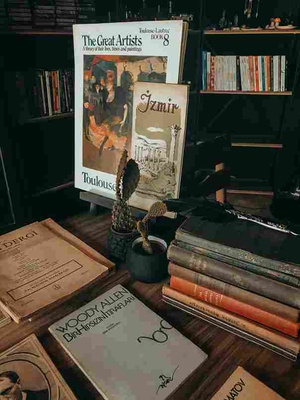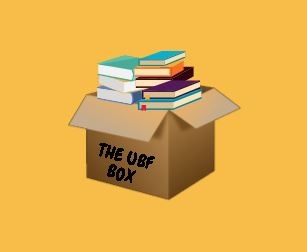Why You Should Read Fiction and Non-fiction Plus the Benefits of Buying Second Hand Novels

Though reading non-fiction is useful for learning facts, it does little to develop emotional intelligence, which can only be acquired by reading fiction. Reading fiction can help us comprehend others, improve our emotional and practical intelligence, and broaden our worldview. Reading fiction expands our minds to new thoughts and possibilities by transporting us to another world, which will undoubtedly aid us in experiencing and analyzing the world through the eyes of others. This activity helps us understand new things by strengthening our minds. Here are the benefits of reading fiction and non-fiction. In addition, we have the benefits of reading second hand books.
Unintentional discovery
We discovered something we'd like to offer here a few months ago as a result of our habit of reading multiple books at once. At the time, we were reading Vasily Grossman's masterwork Life and Fate alongside Field Marshall Erich von Manstein's war memoirs. We noticed something odd while reading, especially as the latter's tale reached the action near Stalingrad. Reading non-fiction while following Grossman's characters' experiences had a reinforcing impact on us, such as understanding what their antagonist had planned for them before they did. In turn, while reading Manstein's description of his campaigns,we felt the influence of Grossman's fictitious plot, transforming casualty statistics and arrows on maps into stories about real individuals worried about their loved ones.
Contextualizing
The nonfiction complements the fiction by providing historical context. We're talking about events that Grossman witnessed firsthand, so he was uniquely qualified to utilize them as the backdrop for a fictitious novel. Simultaneously, fiction provides readers a sense of being there, of living through the events detailed elsewhere in timelines, statistics, numbers, and map charts. Fiction can even elicit an emotional response from the reader in response to historical events. We know that the coincidental simultaneity of the readings elevated my reading experience to a new level for us.
We just discovered the additional benefits of combining complimentary (fiction and nonfiction) books together by chance, but we are confident you could easily reproduce this with a little advance reading planning. Anthony Beevor's superb Stalingrad, which already provides some emotional depth by blending human experiences with the macroscopic narrative of events, is another non-fiction novel that would have likely worked with the original pair.
Rick Atkinson's The Day of Battle, the second volume of his Liberation Trilogy, may be paired with cartoonist Bill Mauldin's Up Front for another Second World War theater. The latter is a firsthand narrative of Mauldin's war years, illustrated with his renowned Willy and Joe drawings, rather than a work of fiction. The cartoons' customary self-deprecating and sarcastic wit works amazingly well against Atkinson's factual portrayal of the Italian campaign.
We don't want this to become into a reading list, so we’ll just give a couple more instances. A combination of fictional titles such as Karl Marlantes' Matterhorn or John M. Del Vecchio's The 13th Valley on the one hand, and nonfictional accounts such as H. R. McMaster's Dereliction of Duty for the political-strategic level, Lewis Sorley's Westmoreland for the operational leadership aspect, or Bernard Fall's Street Without Joy for a broader picture including the French Indochina experience on the other, might be a Vietnam War example.
The fictional titles we've chosen all have a very restricted, military-centric focus, which is exactly what you want if you want to have the most direct link possible with the non-fiction you're reading. However, let us not limit ourselves to believing that only military-themed novels may help us advance in our careers. The US Army War College believes that reading a diverse spectrum of fiction is beneficial, and I couldn't agree more. If you're going to include fiction in a curriculum for formal professional military education, it's a matter of time and priorities, of course.
Don't overlook the visual arts as well.
What if we dared to go beyond literature, into the visual arts, for instance? The Strategy Bridge just published a thought-provoking post on Picasso's Guernica as a tool for leader development. As literary partners, Orwell and Hemingway come to mind. The Black Prince at Crécy, a beautiful representation of the 1346 Battle of Crécy during the Hundred Years' War, is a personal favorite of ours when it comes to paintings (no, we don't simply read cartoons). Some may argue that Napoleon's March to Moscow by Charles Joseph Minard is merely a graphic, but we believe it transmits more emotion and depicts the misery of the 1812 French (or, as Tolstoy would say, "European") war than many paintings with much loftier claims.
This exercise could go on indefinitely, but we’ll just name one to go with the first two volumes on the Eastern European Theater of WWII: the 1993 German-language film Stalingrad, which follows a troop of German infantrymen to the Volga's banks and – spoiler alert – to their deaths in the snow. There is heroism, but it is always tinged with fear, disillusionment, and despair, and it provides a soldier's perspective to supplement Manstein's general's view of the Eastern Front, or a great counterpoint to Grossman's Soviet military characters fighting on the other side.
Broadening our reading horizons
What's the bottom line? Others have made compelling cases for including fiction or science fiction on PME reading lists. We’d want to make two suggestions: first, let's broaden the scope of the fiction we're including. It doesn't have to be about the military, and it doesn't have to be about reading. Second, we propose a method of combining nonfiction with fiction that has the potential to enhance both. Combining factual information with literary fiction and other forms of art may make PME more accessible to those who aren't avid readers and more enjoyable for everyone. The important thing is that you do it, and that you don't do it alone; instead, you talk about it and share your ideas. Yes, it can occasionally begin with purchasing more books than you can possibly read.
Second Hand Novels
Second hand books are less expensive than new ones purchased from a bookstore. Do you see why this is so? Because second hand novels are less expensive and you don't have to go out into the market and seek for books that aren't generally available in regular stores. This will be performed with the assistance of a simple web click as you sit at home browsing through some used books.
The Advantages of Purchasing Second Hand Novels from Used Book Stores
1. Second hand novels are reasonably priced.
Yes, what you won't find in new books, you will find in second hand and novels. Second hand novels are a godsend for anyone who doesn't want to spend a substantial chunk of their allowance on a novel. You may generally save up to 50% of your pocket money by shopping at these fantastic book stores.
2. In second hand novels, previous readers' opinions are incorporated.
What you won't find in first-hand books, you can find in gently used second hand books. Students and those who have used them before will give you a complete knowledge of the notes and will even help you understand the critical parts and portions that you must study. It won't be a problem for you, especially if you're having difficulty understanding your syllabus.
3. Using second hand novels allows one a lot of flexibility.
You have a wide selection of possibilities in front of you if you use old second hand novels. There will be a variety of things to keep an eye out for with so many options. There are a variety of services to hunt for, including old second hand engineering books and science books. Second hand novels are a full wonder for everyone who is ready to look into the wide range of possibilities available to them. You won't have to spend a lot of money on the books you get here. All of the purchasing and selling is straightforward.
4. You can make a donation of second hand novels.
After you've finished reading secondh and novels, you can donate them to online businesses that will pick them up from your home and distribute them to someone in need. As a result, you are assisting society in learning from and benefiting from your second hand novels.
5. The Feel of Second Hand Books
Used books are not the same as brand new books. A second hand book differs from a new book in that it has a different feel and scent, as well as some worn out pages and messages.
6. Second hand novels can be beneficial to anyone.
Used second hand novels can be beneficial to anyone. It's for you and your classmates if they need something from the store to help them get through the semester. These second hand novels will suffice for you and will help you stay on track with your studies. Everything from used medical books to used management books, as well as other subjects, will be right in front of you, and you won't have to go shopping. All of the work may be done with a single mouse click, and your book will be delivered fast and easily to your door.



Comments